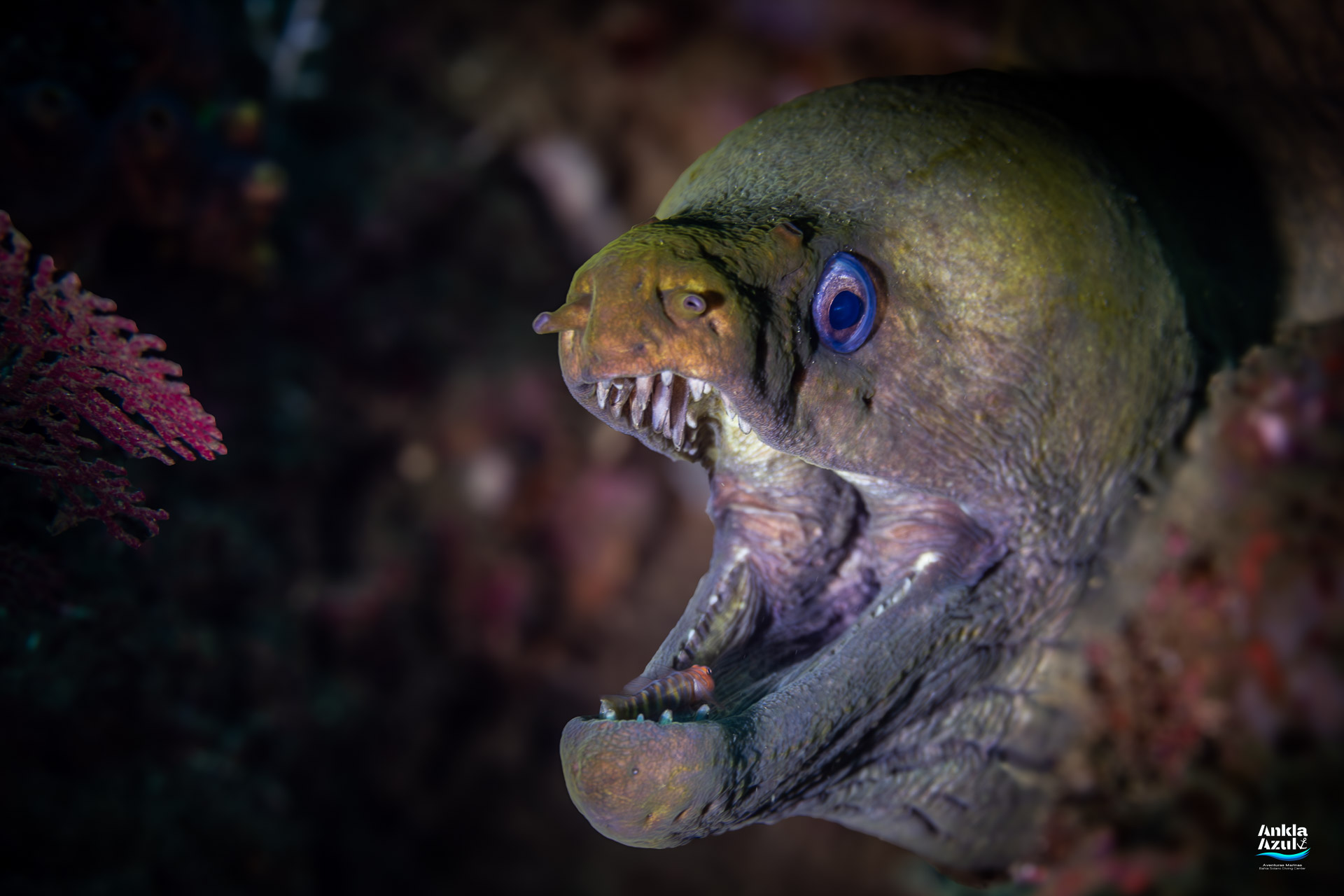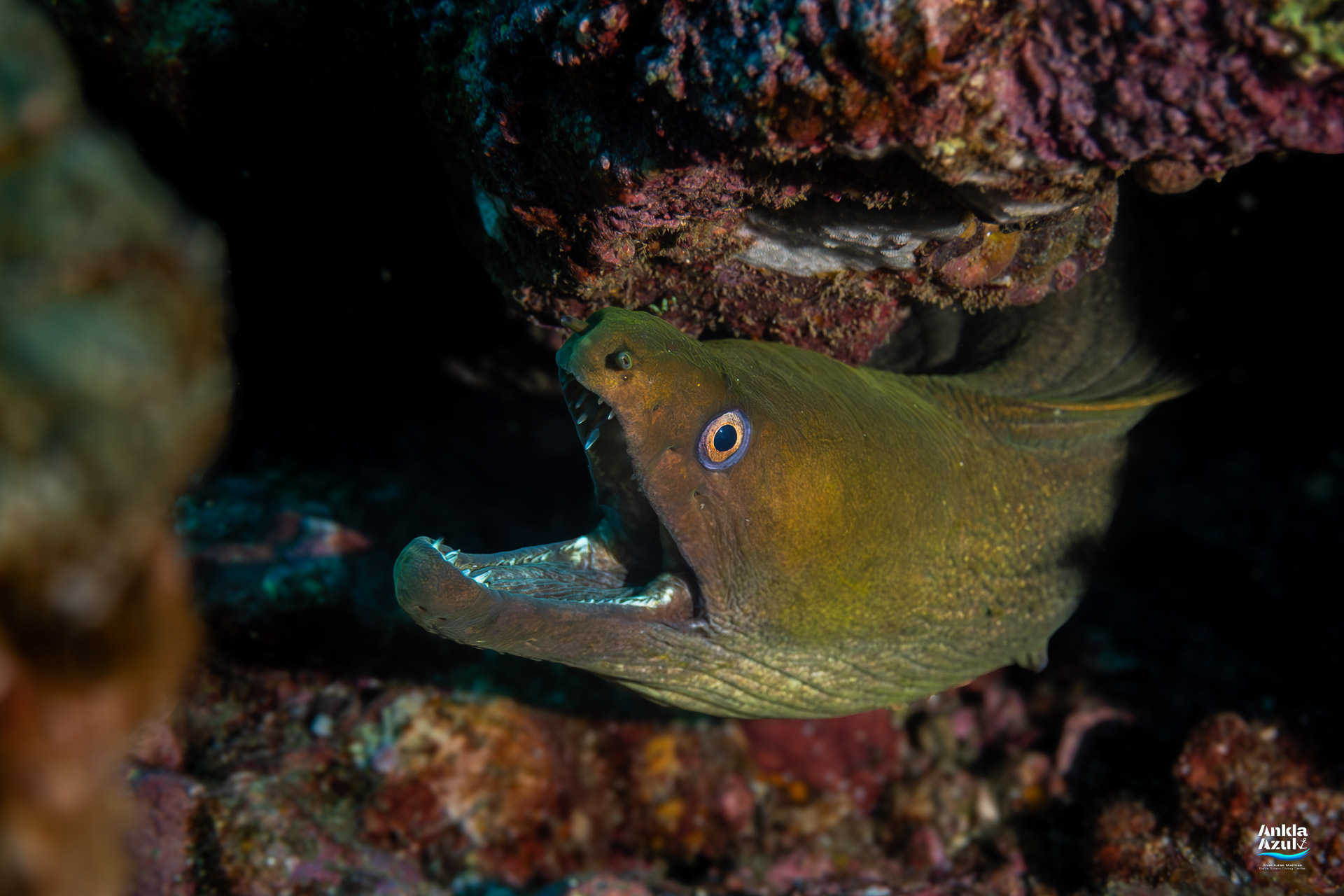Panamic Green Moray
Gymnothorax castaneus
Family: Moray Eels (Muraenidae)
Size: Up to 150 cm (5 ft) | Weight: Up to 4.76 kg
Habitat: Rocky reefs, crevices, and dark recesses.
Distribution: Tropical Eastern Pacific (Gulf of California to Galapagos).
Identification:
A large, muscular eel often seen peeking out from hiding spots.
- Coloration: The Panamic Green Moray displays a vibrant green skin color, distinct from its Atlantic cousin which is typically more yellow or brown.
- Skin: It lacks scales and is coated in a thick, slimy mucus. This mucus protects it from parasites and infections while reducing friction as it slips through narrow rocky crevices.
Behavior:
Despite its sinister appearance, this is actually a shy fish that prefers to avoid human interaction.
- The “Threat” Display: You will often see them opening and closing their mouths to display sharp teeth. This is not a threat; it is an action required for respiration to pump water over their gills.
- Hunting: They are nocturnal predators. During the day they lurk in holes, but at night they leave their den to forage for crustaceans and small fish in the open water.
You just learned about this fish…
NOW COME SEE IT!
Behind the Lens
Jalvan
Underwater Photographer & Instructor
Documenting unique marine biodiversity from the Red Sea across the Pacific Ocean. Dedicated to creating a visual catalog of Bahia Solano’s marine life for conservation and research.
Video: Osmo Action 5 Pro | GoPro
Follow my work:

REFERENCES & DATA SOURCES
-
Scientific ID: Verified via FishBase (Froese & Pauly, 2024).
-
Field Guide: Reef Fish Identification: Baja to Panama (Humann & DeLoach).
-
Conservation Status: IUCN Red List (Least Concern).
-
Regional Data: Ankla Azul Marine Observation Log (Bahia Solano).
More Than Kicking Your Fins
At Ankla Azul, diving is more than kicking your fins. It’s patient teaching, sharp safety, and real care for the place we call home. As an SSI Instructor Training Center and an SSI Blue Oceans Center (2025 award), we blend skill-building with ocean awareness—Fish ID, coral nursery work, community education, and rescue support—so every dive grows confidence and respect for Bahía Solano’s wild Pacific.


